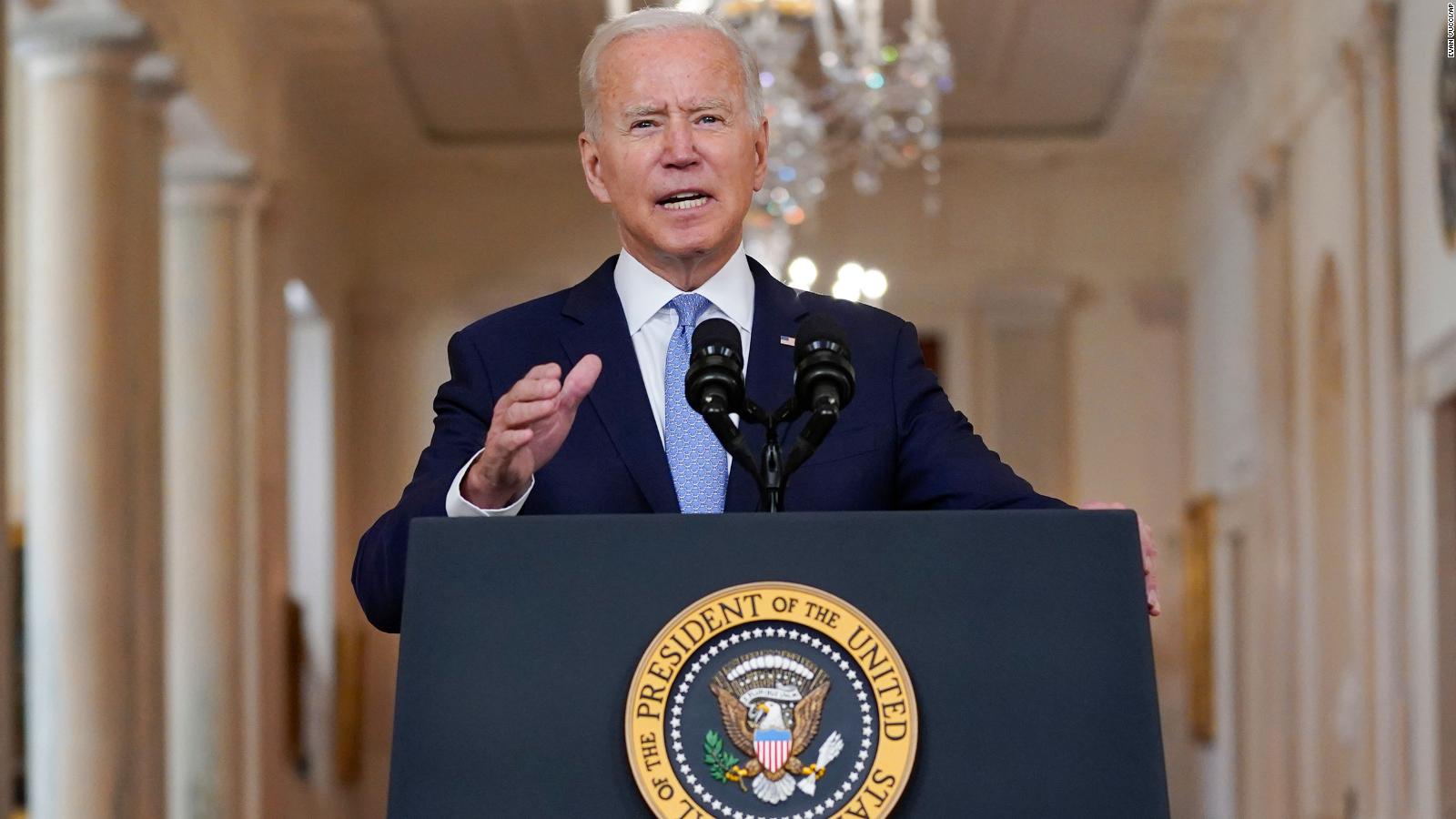(Trends Wide) — Hours after the last US military flight out of Kabul, President Joe Biden began a meeting in the White House Crisis Room with praise.
“They have done an excellent job,” Biden told his top Homeland Security aides, according to a White House official. He thinks the same about his own performance.
His conviction has not been melted by the fire of criticism received in recent weeks for the chaotic conclusion of 20 years of US military involvement in Afghanistan. The flames, as wide as they were intense, came from both Democrats and Republicans, from Americans who voted for him and those who did not.
They have eroded his political strength and slowed the momentum of his economic program at home. Biden responded with his own fire.

US President Joe Biden speaks following the evacuation terrorist attack on Kabul airport on August 26, 2021. (Credit: IM WATSON / AFP via Getty Images)
He has heard, and rejected, all the main accusations. Both publicly and privately, he and his associates dismiss the charge of having neglected fundamentally better alternatives to ending America’s longest war.
Recognition of errors
They acknowledge not having foreseen the sudden collapse of the Afghan government and security forces in the face of the advance of the Taliban amid the withdrawal of US troops. But even if they had anticipated it, they say the possible options – starting mass evacuations earlier or handing the country over to the Taliban outright – would have produced the same chaotic race to the exits.
They accept that they could have processed special visa applications for Afghan allies more quickly. But given the scale of the demand, they say that would only have marginally increased the tens of thousands of people who eventually evacuated.
Biden broke his promise in mid-August to keep troops at the Kabul airport until the 6,000 Americans left in Afghanistan left. But that was before the suicide bombing that killed 13 American soldiers and dozens more.
As the August 31 deadline approached, the military had evacuated all but 100 to 200 citizens, many of whom remained ambivalent about their departure. Biden opted for what another White House aide called “the best chance to save the most lives,” pulling out troops on schedule and relying on diplomatic pressure to help the remaining Americans get out.
Biden’s belief that a war in Afghanistan, often described as the “grave of empires,” no longer served America’s interests, hardened by years of stagnation. As vice president in 2009, he saw Barack Obama fight his own skepticism when military leaders urged him to send more troops in a show of American determination.
“‘What does that mean, exactly?’ I asked, sometimes with too much insight,” recalled the former president in his recently published memoirs. “That we keep repeating the bad decisions we have already made? Does anyone think that staying in Afghanistan for another 10 years will impress our allies and instill fear in our enemies?”
“Don’t let them get you stuck,” Obama says Biden told him.
The then vice president lost that discussion. Now he himself in the presidency, 12 years later, has resolved not to get bogged down.
“That is political leadership”
The fact that most Americans told pollsters that they were in favor of leaving did not make it easy for Biden to achieve his goal. The public’s attention had long since shifted elsewhere. Wars come to messy conclusions.
“It’s a lot more difficult than kicking the can down the road,” observed Michael Beschloss, one of several historians the president brought in for a chat six months ago. “Biden knows the story well enough to know that he will be exposed to criticism for everything that happens. It took guts.”
“That is political leadership, from my point of view,” concluded Beschloss. Nor have the dangers ended; retaliation by the Taliban against remaining Americans and Afghan allies, or other conspicuous human rights abuses, would compound the damage it has already suffered.
For better or for worse, Biden’s belief that he took risks to preserve the national interest has brought out some distinctive qualities. Your temper can flare quickly. The University of Delaware graduate has long been at odds with those – from Republican adversaries to Obama White House aides to Obama himself – who made fun of him and treated him as an intellectual featherweight or a braggart. prone to verbal stumbling.
“In an environment of Rhodes scholars and former professors, he is very sensitive to condescension, real and imagined,” Biden’s biographer Evan Osnos wrote last year. One of his antagonists in the 2009 Afghanistan debate, former Defense Secretary Robert Gates, later called him “wrong on almost every major foreign policy and national security issue of the past four decades.”
Convinced that he is now right, Biden shouted his rebuttal during his speech to the nation following the conclusion of the troop withdrawal. If even some allies found him counterproductively angry and defensive, he didn’t care.
When Biden left the room following his remarks, he learned from a member of his team that television commentators called him “defiant.” That made the president smile.
“He laughed and said, ‘I just said what I think and what I believe,'” the White House aide recalled. “He is defiant in demanding that he admit he was wrong. He does not think he was wrong.”






